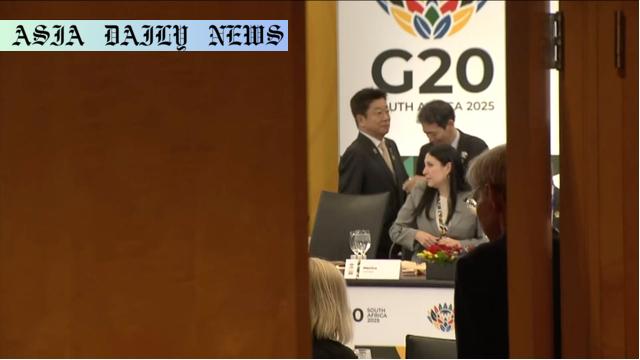Tariffs create concerns over their impact on global economic stability.
Tariffs initiated by the US spark concern among G20 economies.
Focus on promoting multilateral free trade to stabilize markets.
Japan’s calls for cooperative dialogue amidst market uncertainties.

Introduction: Tariffs and Their Global Implications
Finance ministers and central bank governors from the Group of 20 (G20) nations convened in Washington to tackle pressing global economic concerns. Among the key topics of discussion were tariffs, particularly policies stemming from the United States under President Donald Trump’s administration, and their far-reaching effects on international trade and market stability. Tariffs, often seen as tools for enforcing trade fairness, have become contentious due to their potential to disrupt global commerce.
G20’s Stance on Free Trade and Collaboration
A cornerstone of the G20’s mandate is the collective advocacy for free trade as a gateway to sustainable economic growth. In contrast, the imposition of tariffs by the U.S. on select trading partners has raised alarms. Member economies, including Japan, have underscored the destabilizing effects of such policies. Japan’s Finance Minister Kato Katsunobu emphasized the importance of united efforts in fostering open and transparent trade mechanisms, leveraging dialogue to mitigate tensions.
The US-China Trade Friction: A Global Ripple
Further complicating matters is the ongoing trade friction between the U.S. and China. As the world’s two largest economic powerhouses engage in tit-for-tat tariff escalations, the global economy experiences volatility in its stock and foreign exchange markets. Economists caution against a long-running trade war, which could dampen investor confidence, jeopardize growth, and destabilize financial systems worldwide. G20 leaders advocate a return to cooperative strategies to address such risks.
Japan’s Role in Steering Dialogue
Japan’s proactive stance reflects its concern over the weakening yen and the broader economic implications of U.S. tariff policies. Kato’s engagement with U.S. Treasury Secretary Scott Bessent aims to rectify imbalances by addressing currency fluctuations and fostering constructive discussions on trade. This bilateral meeting signifies Japan’s resolve to mediate and ensure stable economic conditions in a rapidly changing global landscape.
Conclusion: The Path Forward
As the world looks to G20 for responsible leadership, the emphasis on collaborative and innovative approaches cannot be overstated. Economic policies must blend pragmatism with inclusiveness to repair fractures in global systems and restore trust in international trade mechanisms. While tariffs present significant challenges, forums like the G20 provide a platform for dialogue and resolution, fostering optimism for a reinvigorated global economy.
Commentary
The Complexity of Tariff Policies
Tariffs are one of today’s most debated economic tools. On one hand, they serve as a measure to protect domestic industries and create a balanced trading environment. However, their unintended consequences often ripple through the global economy. The evolving friction between the U.S. and its trading partners showcases how such actions can destabilize market sentiment and create uncertainty for businesses and consumers worldwide.
The Role of Multilateral Platforms
Multilateral platforms like G20 play a critical role in balancing these economic tensions. By bringing together representatives from the world’s leading economies, they afford an opportunity for dialogue that might otherwise be overlooked in bilateral agreements. The call for inclusive, open trade during the recent G20 finance meetings was not only timely but essential, as it acknowledges the interconnectedness of modern economies.
A Call for Balanced Policy-Making
The path forward requires more than just dialogue; it demands actionable and balanced policies. Addressing inequalities, stabilizing market conditions, and fostering growth must take precedence over protectionism. Policymakers must also consider the socio-economic contexts of affected nations, ensuring that strategies benefit the global community while maintaining fairness to individual economies.


